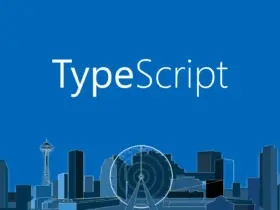

The Ultimate Guide to NodeJS Web Development
What is Node.js
Node.js is a JavaScript runtime, which means it runs programs written in JavaScript. Most developers use it to reate command-line tools or web server applications. Node.js was initially developed by Ryan Dahl. He took the V8 JavaScript engine from Google’s Chrome browser, added some APIs, wrapped it in an event loop, and launched it as an open-source product on Linux and macOS in 2009. The Windows edition arrived in 2011.
The Node Package Manager (npm) was introduced in 2010. It allowed developers to use code modules ublished by others in their own projects. There was no official ECMAScript module standard at the time, so Node.js and npm adopted CommonJS.
The first (non-beta) release of Node.js arrived in 2015, with updates promised every six months.
Node.js wasn’t the first JavaScript runtime, but unlike other options such as Rhino and SpiderMonkey its popularity grew exponentially. Even those writing PHP, Python, Ruby or other languages often use Node.js tools to supplement their development processes.
Download eBook
Why Learn Node.js?
JavaScript is the most-used language on GitHub, and it’s ranked highly by developers. Companies including Netflix, Uber, Trello, PayPal, LinkedIn, eBay, NASA and Medium have adopted Node.js, and most professional
developers will have encountered Node.js tools.
Below, we’ll look at some of the reasons you should consider using Node.js.
It’s JavaScript
JavaScript is used on trillions of web pages, where it has a browser monopoly. Every professional web eveloper requires JavaScript knowledge to program client-side applications.
Server-side languages are more diverse. Historically, developers could opt for PHP, Ruby, Python, C# (ASP.NET), Perl, or Java, but these have different syntaxes and concepts. It can be difficult to switch contexts, so larger project teams often split into frontend and backend developers.
Node.js allows a developer with frontend JavaScript knowledge to leverage their skills on the backend. It won’t make you a full-stack developer overnight, but the concepts are similar, and there’s less rigmarole when formatting JSON, handling character sets, using WebSockets, and so on.

















Leave a Reply